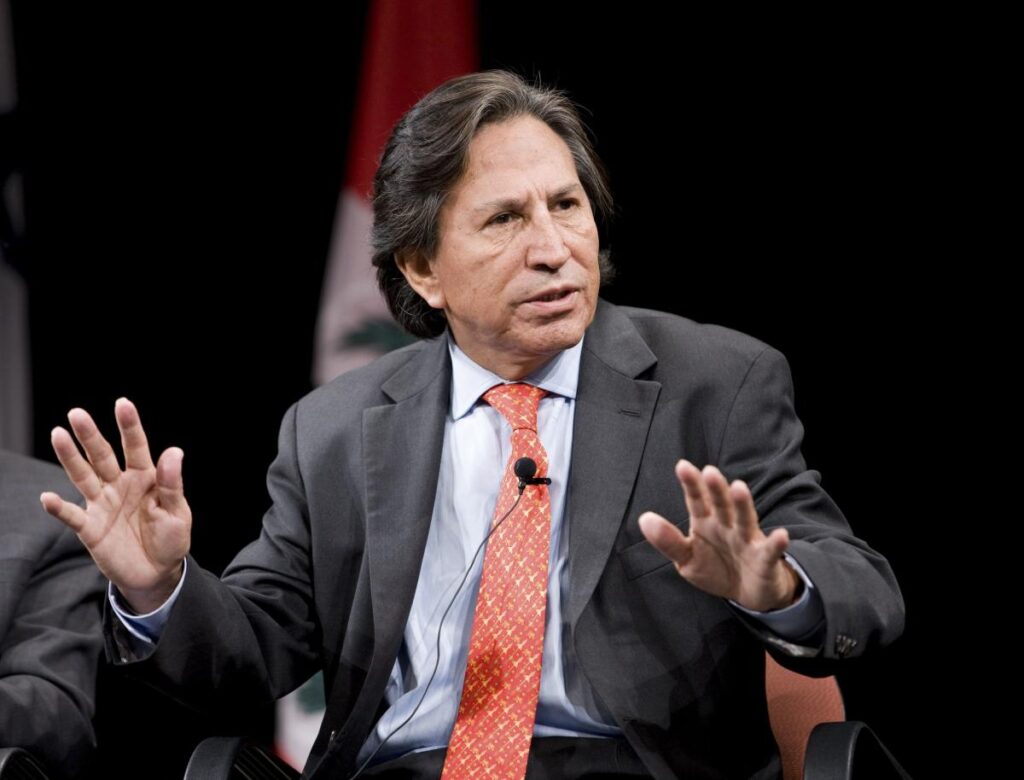In a significant decision for Peru, former President Alejandro Toledo has been sentenced to 20 and a half years in prison for receiving substantial bribes linked to a highway construction project. This verdict marks an essential milestone in the nation’s anti-corruption campaign, representing the first conviction of a sitting or former president in the aftermath of a decade-long crackdown that was initiated following the extensive corruption scandal involving the Brazilian construction giant Odebrecht SA. According to prosecutors, Toledo accepted a bribe totaling $35 million from Odebrecht, with at least $20 million being confirmed as paid. Despite the evidence presented, Toledo has continuously professed his innocence regarding the allegations.
Toledo served as Peru’s president from 2001 to 2006, coming into power after the ousting of the authoritarian Alberto Fujimori, who fled to Japan amidst a corruption scandal. Ironically, Toledo, a fervent critic of Fujimori, ended up being incarcerated in the same facility as his former opponent when he was extradited from the United States to face trial. His conviction not only highlights the country’s strengthening judicial system but also serves as a stark reminder of the pervasive corruption issues that have plagued Peru’s political landscape over recent years.
The case of Alejandro Toledo is particularly noteworthy as he is only the second Peruvian president to receive a criminal sentence this century, following Alberto Fujimori. However, Toledo’s conviction is precedent-setting as he is the first former leader to be found guilty in relation to the corruption uncovered at Odebrecht. This ongoing saga continues, as two additional former presidents are still battling corruption accusations linked to the aforementioned construction company, indicating that the impacts of the Odebrecht scandal are yet to be fully resolved in the Peruvian political sphere.
Peru’s reputation for prosecuting former leaders has grown considerably, leading to the establishment of a specialized facility designed to house ex-presidents. At one point, this prison held three former heads of state at the same time, a situation unprecedented in many democracies globally. In 2019, former President Alan Garcia tragically took his own life as a means to evade arrest due to charges stemming from his dealings with Odebrecht. Additionally, former President Ollanta Humala serves a term in jail linked to similar bribery allegations, while ex-President Pedro Pablo Kuczynski was subjected to house arrest. Following Garcia’s passing, his case has been closed, yet Humala’s and Kuczynski’s legal troubles remain unresolved.
Adding to the political turmoil, former President Pedro Castillo is currently detained while awaiting trial for attempting to dissolve Congress illegally in 2022. This sequence of events underscores a broader trend in Peruvian governance, marked by a cycle of corruption allegations resulting in criminal charges against several presidents over the years. All aforementioned figures, including Toledo, Castillo, Humala, and Kuczynski, have maintained their innocence against the charges leveled against them, further fueling the contentious political climate in the country.
As Peru navigates the repercussions of systemic corruption and the fallout from the Odebrecht scandal, Toledo’s sentencing could potentially establish new norms for accountability among its leaders. The legal proceedings against these former presidents not only highlight a shift towards a more transparent and accountable government but also emphasize the public’s growing demand for integrity in political leadership. As this narrative unfolds, the future of Peruvian politics remains uncertain, with ongoing trials and investigations shaping the path ahead for both the nation and its leaders.

